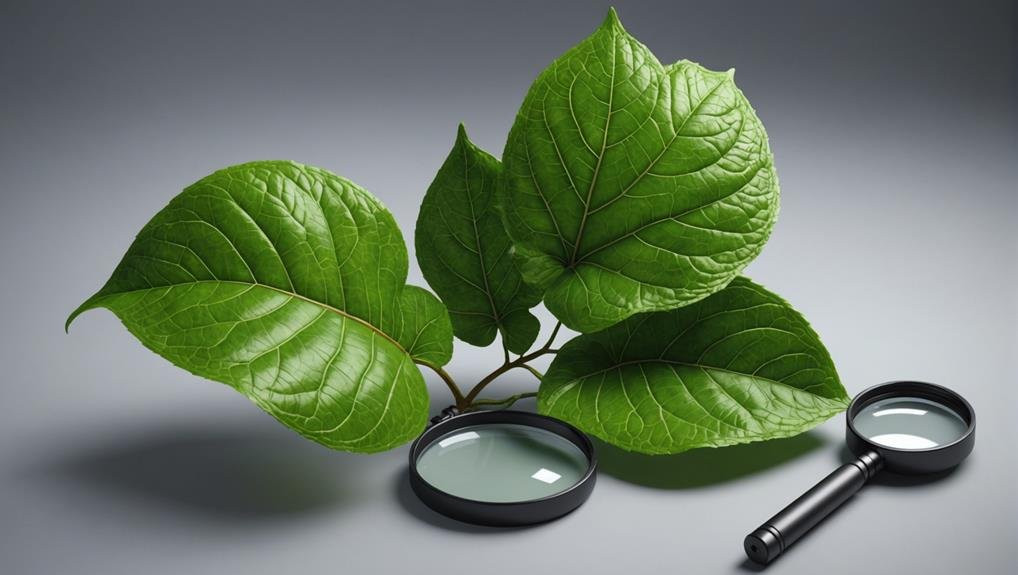Poison Ivy: Misconceptions Debunked
Unravel the truths about poison ivy rash by dispelling misconceptions. Poison ivy rashes aren't contagious; they stem from direct urushiol oil contact, triggering allergic reactions in susceptible individuals. Risks involve touching the plant or contaminated surfaces. Prevention methods like wearing protective clothing and immediate skin washing are key. Urushiol oil leads to skin reactions like redness, swelling, and blisters, with early identification aiding prompt treatment. Treatment options vary from over-the-counter remedies to prescription corticosteroids for severe cases. Understanding these facts can help you protect yourself from this common allergen that affects nearly 85% of people.
Key Takeaways
- Poison ivy rash is not contagious; it results from direct contact with urushiol oil.
- Allergic reactions occur in susceptible individuals upon exposure to urushiol.
- Risks involve touching the plant or contaminated surfaces, not person-to-person spread.
- Protective clothing and immediate skin washing are crucial for prevention.
- The rash does not spread through fluid contact; it is triggered by urushiol exposure.
Common Myths About Poison Ivy Rash
Misconceptions about poison ivy rash often lead to unnecessary fear and confusion among individuals who may come into contact with the plant. To prevent a poison ivy rash, it's important to learn to identify the plant and avoid contact.
When hiking or working outdoors, wearing long sleeves, pants, and gloves can provide a physical barrier. After potential exposure, washing the skin with soap and water within the first few hours can help remove the urushiol oil, reducing the risk of a rash.
If a rash develops, over-the-counter hydrocortisone creams and calamine lotion can help alleviate itching and inflammation. Severe cases may require prescription-strength medications or even oral corticosteroids.
Understanding these prevention tips and treatment options can help manage poison ivy rashes effectively.
Debunking Contagious Poison Ivy Misconceptions
To emphasize, poison ivy rashes aren't contagious, as they result from direct contact with urushiol oil found in the plant rather than person-to-person transmission.
When exposed to urushiol, the oil binds to the skin, leading to an allergic reaction in susceptible individuals. The main exposure risks involve touching the plant or surfaces contaminated with urushiol.
Prevention methods include wearing protective clothing, washing skin immediately after suspected contact, and cleaning tools or pets that may have come into contact with the oil.
It's crucial to mention that the rash itself can't spread from one person to another through fluid contact. Understanding how urushiol works and adopting preventive measures can greatly reduce the likelihood of developing a poison ivy rash.
Understanding the Truth About Poison Ivy Rash
Understanding the truth about poison ivy rash involves recognizing the specific mechanisms by which urushiol oil triggers allergic reactions on the skin. Upon contact, urushiol binds to skin proteins, initiating an immune response leading to redness, swelling, and blisters.
Prevention tips include wearing protective clothing, washing skin immediately after exposure, and avoiding contact with the plant. Identifying symptoms early, such as itching, redness, and a linear rash pattern, can aid prompt treatment.
Treatment options encompass over-the-counter remedies like calamine lotion, oral antihistamines, or prescription corticosteroids for severe cases. Long-term effects may include scarring or increased sensitivity upon subsequent exposures.
Understanding these aspects can help mitigate the impact of poison ivy rash on your skin.
Conclusion
To wrap up, don't let misconceptions about poison ivy cloud your judgment. Like a well-informed scientist, arm yourself with accurate knowledge to protect yourself from the green menace.
Remember, the rash isn't contagious and doesn't jump from one body part to another. By understanding the truth about poison ivy, you can confidently navigate the outdoors without fear of the spreading rash.
Stay educated, stay safe, and keep those pesky plant oils at bay.







